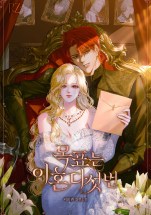Colorless King (7)
Why the hell did the Tsar bother giving a seat to a region without even a local zemstvo?
When Veren Volkov left the Far East, he’d asked himself that, but now it felt pointless.
“Finally! Freaking finally!”
After a grueling two-month journey, Veren Volkov arrived in St. Petersburg, nearly in tears.
Four years ago, chasing a man’s adventure, he trusted the crown prince’s words and headed to the Far East.
He swore he’d succeed there, yet here he was, back on his own two feet.
“Did that adventure twice… I’ll make it big and return,” he vowed.
Looking back, it was weird when Governor Sergei summoned him.
“Politician? You want me to handle it?” Veren had asked.
“It’s not much different from your army days. Think of it as being a figurehead and PR guy,” Sergei said.
“I just settled down. Leaving my family for that trek—” Veren started.
“If you do well and return, I’ll hook you up with a huge warehouse by the port before my term’s up. Leasing that’d make you bank,” Sergei offered.
“When do I leave?” Veren replied.
The moment he volunteered, Sergei dragged him to the parade ground, ordering the soldiers, “Vote for this guy!”
And just like that, Veren became the Far East’s Duma representative.
“The governor knew. Traveling between the Far East and the capital is insane,” Veren muttered.
Fresh in the capital, he already dreaded the return trip.
As a Duma member with aides, he’d get a salary, so he brought two others, arriving in St. Petersburg looking like bedraggled hobos.
The imperial capital.
A city radiating centuries of civilization.
“…Nothing like Khabarovsk or Vladivostok,” Veren said.
“It’s where the Tsar resides,” an aide replied.
A metropolis of over 1.5 million. Streetlights and paved roads, unseen in the Far East, felt surreal.
Feels like I’m some country bumpkin.
He thought he’d been living large, but the city overwhelmed him.
Veren realized the Tsar’s national Duma was no joke.
That feeling grew as he reached the Tauride Palace, where Duma members gathered.
“The empire’s finest mansion. Nobles build their homes copying this,” Veren marveled.
The entrance alone, with gardens and lakes dwarfing farms, was staggering.
The main palace’s central dome was so vast it defied measurement.
“Aide, how tall’s one of those main pillars?” Veren asked.
“At least forty men stacked high,” the aide guessed.
“And 200 Duma members meet here,” Veren said.
The empire’s top talent, representing their fields. Veren felt intimidated but squared his shoulders, marching in like a toy soldier.
“The Duma’s in session,” a guard said.
“Veren Volkov, I’m a member,” Veren replied.
“Wait a moment. Confirmed. Enter,” the guard said.
A gathering of scholars and intellectuals at the pinnacle of learning. Each member representing tens of thousands.
How refined and intellectual must their debates be?
Don’t look ignorant. I’m the Far East expert. I know that region better than anyone here. That’s enough.
With that, Veren steeled himself.
Creak.
He was just here to correct Far East rumors and promote—
“You bastards! One desyatina per family? What kinda bullshit is that?”
“Shut up with your low-class nonsense! Yelling for a newspaper headline?”
“A wife and husband make a family, and you’re giving that much land? Did the empire unify Europe while I wasn’t looking?”
Before sitting, Veren froze, wondering if he’d walked into the wrong place.
But the hundreds of seats in the converted banquet hall screamed national Duma.
“Calm down, folks. The goal’s ‘no one starves, everyone eats well.’ So, lower grain prices—”
“Piss off, you leeches! Ever gotten dirt under your nails? Hammer away for days like us farmers! See if one grain grows!”
“Who said grain prices matter? Fairness! The process must be noble, not just the outcome!”
“Shut it, you fat pigs!”
Is this the empire’s highest institution or a Roman Colosseum?
Shouts, flying papers, no one sitting to talk.
Desk-banging, finger-pointing yells, someone standing rigid, singing the anthem like they’re deaf and blind.
Not even seated, Veren felt a disloyal thought.
This is… the Duma?
This decides the empire’s future? He crossed a continent for two months for this?
Street beggars pooling coins for dinner would be nobler.
Finding his nameplate in a corner, he sat as the chairman pounded the gavel—maybe a hundred times in two minutes.
The chaos paused, everyone calming slightly, but—
“Why’s the chairman only banging when it’s our turn? You’re in the bourgeois’ pocket!”
“Never happened!”
“That’s slander! Expel him!”
“Let him be. Kicked out by their parents as deadbeats, they’d have nowhere in the empire if ousted here.”
“What’d you say?”
The gavel, worn from overuse, looked battered.
The war without swords resumed the moment someone spoke.
Reporters at the Duma’s edge quietly jotted notes.
The news Veren read over two months came from this mess.
“…What a shitshow,” he muttered.
He didn’t want to stay a second longer, but he was a Duma member. Dirty or not, he had a job to do—for Sergei’s port warehouse lease.
“Uh, excuse me—”
“You filthy beast!”
“I’m Veren Volkov from the Far East—”
“Ignorant fools like you shouldn’t be here!”
“My land’s full of potential—”
“What school’d you go to?”
“Moscow Theological Academy! What you gonna do about it?”
“I’m Lutheran, you bastard!”
“Heretic! Heretic!”
For an hour, Veren shouted until hoarse, but no one listened.
From the start, only the reporters were listening.
Everyone else just yelled.
Duma news filled papers daily, but it wasn’t my focus.
In ’96, looking back on my first year as Tsar, I reflected.
Feels like I did nothing, yet so much happened.
The empire’s currency value wobbles, so grain-exporting rich farmers get richer, while pure capitalists lose their minds.
Maybe shaky currency pushes capitalists to focus on domestic markets over exports.
Good news: the gold standard starts this year, ending the farmers’ free ride.
Aside from benefits going to the wrong folks, growth was solid.
Since Father’s final days, we’ve hit nearly 10% economic growth yearly, and agriculture’s share has been shrinking since the ‘90s.
“If I can get peasants down to 70% in ten years, that’d be golden,” I said.
Over ten million farm households, by estimate.
Fewer peasants mean more workers.
This year, we need jobs to avoid labor shortages and improve work quality.
“It’ll be a damn golden year,” I muttered.
My memory says global crop yields explode for at least six years. The empire’s in a golden age.
Luckily, the treasury’s flush. Deficits were cleared in Father’s time, and we’ve been stacking cash since.
While the Duma stole the empire’s eyes and ears, I prepared step by step.
“From this year, a census committee and land survey committee will launch, operating in 47 provinces and 463 counties,” I announced.
“Manpower needs will be endless,” Witte noted.
“We’ve hired a record number, but it might lower bureaucrat quality,” another warned.
“Gotta live with that. The census won’t take long… land survey?” I asked.
“At least ten years. Maybe more,” came the reply.
“Minister, you know what I’m gonna say,” I said.
“Cut it down?” he guessed.
I nodded slowly. Unlike those Duma clowns shouting their way, I’m prepared.
“This immigration policy they’re pushing? They don’t know Siberia’s cold. Crossing a mountain takes adaptation—think it’s doable?” I scoffed.
Sometimes, you gotta take from some and give to others, plain and simple. I’m prepping for it.
“Next, Education Ministry. By year’s end, 175 new industrial schools,” I said.
“Fully lifting education restrictions feels rushed,” a minister cautioned.
“Don’t care,” I replied.
Of all Father’s policies, the education restrictions baffle me most.
Send kids to school, they turn commie? Really?
Believe it? This absurd policy lasted until the empire’s fall.
University lecture limits, subject restrictions, even student caps.
The excuse? If everyone’s in school, no one works.
By ‘97, history says the empire peaks.
Mining, steel, textiles hit Western Europe levels. Railways double in a decade, pig iron production hits world’s third, oil first.
This year’s solid, but the empire keeps breaking records, showing its weight in two years.
Then it’s downhill. No brakes.
Boom’s always followed by bust.
The ‘97 peak made subjects hypersensitive to the bust, which dragged over a decade, sparking revolution.
“Witte, our fast growth’s just because we’re latecomers, right?” I asked.
“Agreed,” he said.
“Tax revenue’s up not from taxes but state-owned enterprises’ sales,” I added.
“Correct,” Witte nodded.
I didn’t mention, but private firms rely heavily on government contracts.
“Why’s that?” I pressed.
“No private market, no middle class,” Witte answered.
“No, the deeper reason,” I said.
“…I don’t know,” he admitted.
“Honest, I like that,” I said.
Witte bowed slightly. No need to be ashamed. I wasn’t scolding.
“Remember Bunke’s credit union market reform?” I asked.
“The failed experiment?” Witte replied.
“Yeah, but why’d he try? Simple. No industrial bank,” I said.
“St. Petersburg Private Industrial Bank and Moscow Merchants’ Bank exist,” Witte countered.
“Not those. A state industrial bank,” I clarified.
Leaving industrial banking to private hands? No growth.
“I mean a national policy bank,” I said.
Currently, the empire has two state banks: the Peasant Bank and the Noble Land Bank.
The Peasant Bank came first for rural farmers, but nobles got jealous, so Grandfather made one for them.
“The rest are just regional credit unions for similar industries,” I said.
An environment where big firms can’t even be born.
“Witte, establish a state industrial bank,” I ordered.
“Your Majesty, state loans to industries aren’t simple. Bureaucrats can’t handle every issue, and benefits might skew to specific sectors,” Witte warned.
“That’s the point! Benefits to specific industries!” I shot back.
That’s the role I want, like South Korea’s Industrial Bank, catching flak for heavy-handed policy loans. That’s why I’m building it.
“…How will you fund massive loans? Farm loans are small; these are different. Collateral uncertainty’s a problem,” Witte said.
“Got a plan. Liquor tax. Let’s make the empire the world’s fourth liquor monopoly,” I said.
A crazy tax, footing a quarter of future Russia’s revenue, without threatening livelihoods—a financial scam, basically.
Tax as much as you want, no one complains. It’s like printing money.
I’d love to go full reform-and-open, pulling future growth forward, but our capital’s too weak compared to Western Europe.
Can’t let 200 million rubles bleed out yearly in foreign dividends.
So, we juice growth first.
“Any other issues?” I asked.
“…I’ll review it,” Witte said.
“Good. Get to it,” I ordered.
One step at a time.
Though Tsar, I see myself as a bud awaiting bloom.
Not yet.
One bloom, one chance. No shrinking back, no regrowth.
So I wait, holding my breath. The empire’s fall is far off; I’ve got time.
“Today’s lesson… theology,” I sighed.
Orthodox theology. I’d dodge it by imperial decree, but in this era, it’s like character education—unavoidable.
I grabbed a theology book and started reading.
It’s not time yet.


















